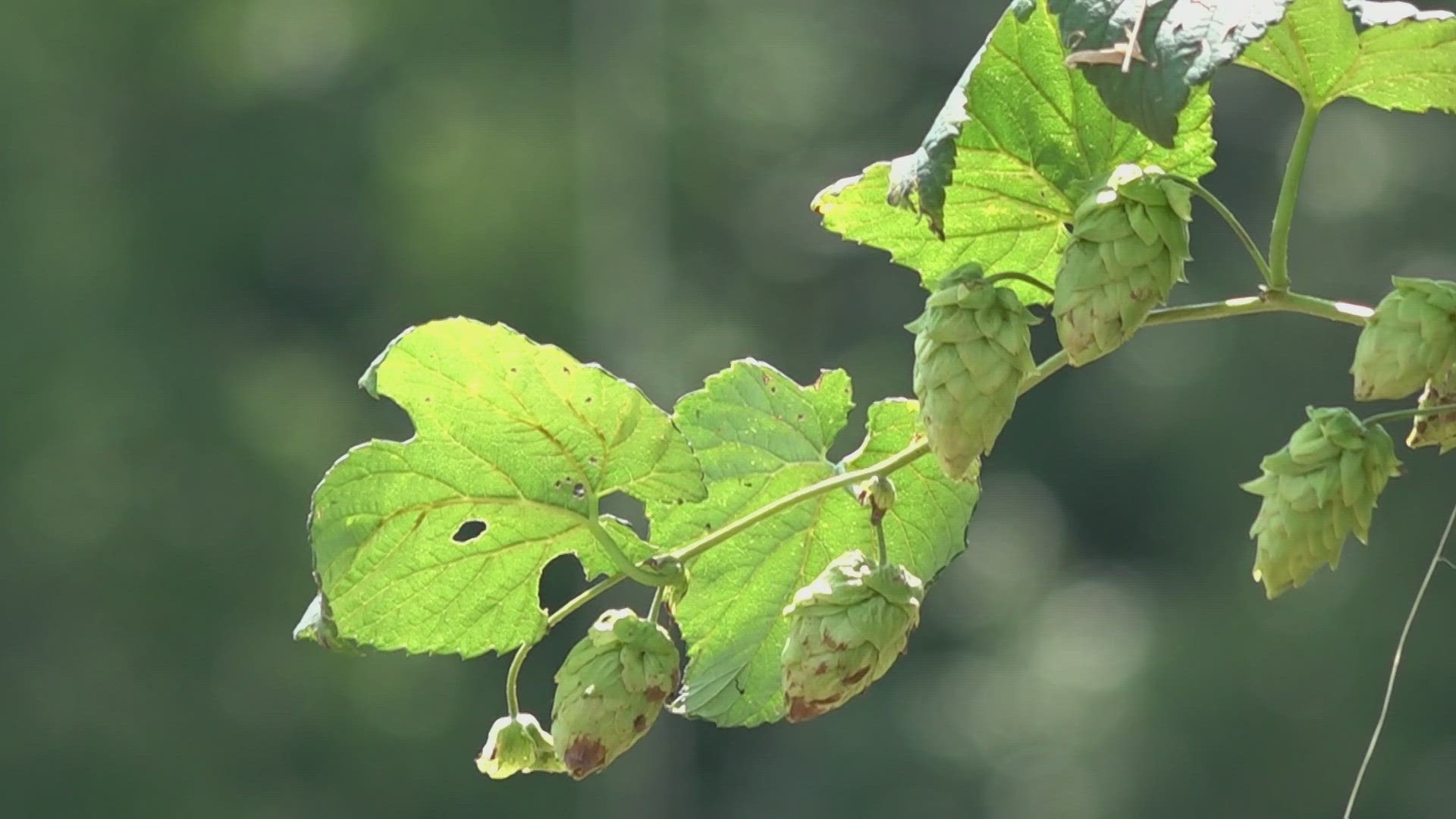KNOXVILLE, Tenn. — Beer production and distribution is now a billion-dollar industry in Tennessee, providing more than 36,000 jobs across the state, according to the Beer Institute and National Beer Wholesalers Association.
In an effort to support the state's growing brewery industry, University of Tennessee researchers are studying how to grow hops in East Tennessee. Hops are used to brew beer and are vital to the production process.
In June, the university opened a hopyard along Alcoa Highway to serve as a research project.
"If you look at traditional hops production, it's not anywhere near here, so we're trying to figure out how we can basically grow hops here in Tennessee," UT Institute of Agriculture assistant professor Dr. Mitchell Richmond said.
At his family farm in West Knox County, Keith Eyer has embraced the growing hops industry. "They're pretty spectacular plants," he said, adding that he's excited about the potential boom in business.
Being one of the few hops growers in Tennessee, Eyer has been on the hunt for answers: what does it take to successfully grow hops on Rocky Top?
Eyer began growing hops four years ago and today, he continues to learn about the process. "The first year, I put some in, they didn't do anything," he admitted. Through trial and error, Eyer's hopyard has grown from eight plants to 120.
The university's hopyard includes over 700 plants and dozens of varieties.
"If we can look at plant population studies, or possibly supplemental lighting, fertility, manipulation, we may be able to close this gap and make hops a viable crop for Tennessee producers," said Dr. David Lockwood, a fruit and nut crops extension specialist of plant sciences at UT's Institute of Agriculture.
The university's hopyard opened in June and researchers say they'll continue studying the plants for at least 10 years.

